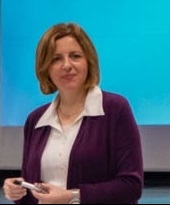Tagged: “Forgiveness books”
In your book, Forgiveness Is a Choice, you say that we should approach the process of forgiving with a sense of “willingness” rather than “willfulness.” I thought that forgiving is an active process and “willfulness” seems to capture that sense of being active more than “willingness” does. Would you please clarify for me?
When I use the term “willfulness” I mean this: We have to be careful not to force the process of forgiving. We, for example, cannot demand that we now feel compassion toward someone who treated us in a cruel way. We have to be open (willingness) to this gradual change of heart toward those who have hurt us. I do not mean to imply either that forgiving is passive or outside of our free will. Instead, I am suggesting that as we actively engage our free will, the process of forgiving still takes time. We are not in absolute control of the timing or the difficulty involved in forgiving another person.
For additional information, see Forgiveness is a Choice.
I want to start working on the theme of forgiving toward one of my parents. I have a therapist with whom I have been working for many years. She says that she has not studied Forgiveness Therapy, but is open to exploring forgiveness with me. What do you suggest under this circumstance?
I recommend that you, personally, first examine one of my self-help books (Forgiveness Is a Choice, The Forgiving Life, or 8 Keys to Forgiveness). See which you prefer. Then bring a copy of the chosen book to your therapist as you also retain a copy. Both of you can work systematically through the book that you choose. Given the therapist’s years of experience in the mental health profession, she should have no problem assisting you on your forgiveness journey.
For additional information, see Learning to Forgive Others.
If a person is good at forgiving, does this mean that he is a highly developed person?
The answer depends on the definitions of both the term “good” and the term “highly developed person.” If by the term good we mean: a) understands forgiveness accurately; b) practices it consistently; c) has developed a love of this virtue; and d) tries to appropriate forgiving as love for others, then yes, I would say that this is a highly developed person. By “highly developed” I would say that he: a) strives to be good to others in terms of justice, courage, and wisdom in addition to forgiving; b) puts moral virtue above material gain or the rewards and praises from others; and c) has as an end point to his life the betterment of humanity.
For additional information, see What is Forgiveness? and The Forgiving Life.
Forgiveness Workshop Inspires National Movement in Greece
If you’re wondering whether attending one of Dr. Robert Enright’s workshops can truly make a difference in your life, you’ll want to read a fascinating article about one participant who has as her goal spreading forgiveness throughout her homeland of Greece — Dr. Kalliopi (Peli) Galiti.
Since taking the course in 2012, Dr. Galiti has influenced thousands of Greek teachers and students to practice the life-altering virtue of forgiveness.
Dr. Galiti has translated Dr. Enright’s Forgiveness Education curriculum from English to Greek and written two Greek-language forgiveness books that are being used in the country’s school system. She is now a visiting scholar at the University of Wisconsin-Madison and travels to Greece three times per year to continue teaching educators about forgiveness. .
.
I have done a lot of forgiving in my time. There is one person whom I just can’t seem to forgive. I am very hard on her. The problem is that this person is me. How can I forgive myself? Any hints on this would be greatly appreciated.
You are not alone when you say it is hardest to forgive yourself. Most of us are harder on ourselves than on others. So, welcome to a large and not-so-exclusive club. The pathway to forgiving oneself is actually not that different from forgiving other people. That pathway, of forgiving others, is discussed in detail in the book, Forgiveness Is a Choice (available for purchase from this website). I recommend that book because the forgiveness pathway described there has the most scientific support of any forgiveness model out there.
OK, now to self-forgiveness. When you forgive yourself, the complication is that you are both an offended person and an offender. At the very least, you have offended yourself, you have broken your own standard in what you did or said. And, I might add, we rarely offend ourselves in isolation. So, a first step may be to go to those whom you have offended and say you are sorry and ask for forgiveness. Please realize that those whom you approach may or may not be ready to give the gift of forgiveness. Thus, please be patient and understanding. A second step then is to offer to yourself in forgiveness what you offer to others when you forgive them—compassion, gentleness, understanding, and love. Yes, even love. Give yourself permission, as an imperfect person, to love yourself despite what you did to offend yourself. You are larger than your actions and words. You are more important than only your unjust words and actions, as is every person in the world. Allow this perspective toward yourself to gently wash over you until you believe it. This is the essence of self-forgiveness.
Learn more at Self-Forgiveness.




